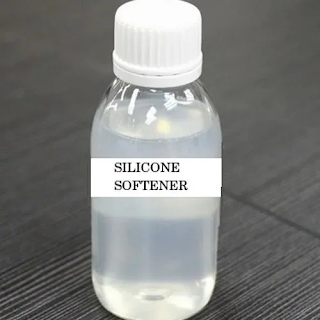
In the textile industry, achieving a smooth, soft, and premium fabric feel is essential for enhancing product value and customer satisfaction.
One of the key finishing chemicals used to improve hand-feel and performance is silicone softener.
From garments and home textiles to industrial fabrics, silicone-based softeners help manufacturers deliver fabrics that feel luxurious, durable, and comfortable.
Today, the demand for high-quality silicone softener for textiles is rising rapidly across India, especially among export-oriented units.
With advanced formulations, better stability, and eco-friendly compositions, silicone softeners have become a standard in modern textile finishing.
This blog explains what silicone softeners are, their types, applications, benefits, manufacturing insights, and how to choose the right supplier, especially if you are sourcing from a silicone softener manufacturer in India.
What Is a Silicone Softener?
A silicone softener is a textile finishing chemical applied to fabrics to improve softness, smoothness, flexibility, and overall hand-feel. It forms a thin protective film on the fibers, reducing friction and enhancing drape quality.
Compared to traditional softeners, silicone fabric softener offers superior softness, elasticity, and long-lasting performance.
Silicone softeners are widely used in cotton, polyester, blends, denim, terry towels, knits, hosiery, and high-value garment finishing.
Why Do Textiles Need Silicone Softener?
Textile processing, especially bleaching, dyeing, and washing, can make fabrics stiff, dry, and lifeless. Using a silicone softener wash helps restore softness and ensures:
- Smoother touch and premium feel
- Enhanced elasticity and drapability
- Better sewing performance
- Reduced pilling
- Increased fabric life
- Improved moisture management (with hydrophilic types)
This makes silicone softeners crucial in garment processing units, knitwear factories, and home textile manufacturers.
Types of Silicone Softeners Used in Textiles
Modern silicone softeners come in various forms depending on the required finishing effect. Below are the most commonly used types in the industry:
1. Amino Silicone Softener
- Excellent softness
- Smooth and flexible feel
- Durable finishing
- Most widely used across garment units
2. Hydrophilic Silicone Softener
A hydrophilic silicone softener improves moisture absorption without compromising softness. It is ideal for:
- Towels
- Sportswear
- Innerwear
- Baby clothing
- Absorbent fabrics
These softeners maintain absorbency even after multiple washes.
3. Non-Yellowing Silicone Softener
Suitable for:
- Whites
- Pastel shades
- High-temperature processing
Prevents yellowing during drying and curing.
4. Micro & Macro Silicone Emulsions
Micro-emulsions → super soft, smooth handfeel
Macro-emulsions → fuller, bulky softness
5. Silicone Based Fabric Softener (Hybrid Formulations)
These combine silicone with fatty softeners for a balanced, soft and smooth finish. Widely used in:
- Denim
- Heavy fabrics
- Home furnishings
Benefits of Using Silicone Softener in Textile Processing
1. Superior Softness and Smoothness
Silicone creates a microscopic lubricating layer on fibers, giving unmatched softness.
2. Improved Elasticity and Drapability
Garments become more flexible, stretchable, and flow better.
3. Enhances Fabric Strength
Reduces friction during sewing and wear, making fabrics more durable.
4. Long-Lasting Finishing
Softness lasts longer due to silicone’s strong bonding properties.
5. Heat & Chemical Stability
Works efficiently under high-temperature textile processes.
6. Improves Absorbency (Hydrophilic Grades)
Essential for towels, activewear, and medical fabrics.
7. Versatile Application
Can be used in:
- Exhaust process
- Padding mangle
- Spray application
- Finishing machines
Silicone Softener Manufacturing Process (Simplified Overview)
The silicone softener manufacturing process involves multiple chemical reactions and emulsification steps. Here’s a simplified view:
- Polymer Formation
Silicone oils or amino-modified silicones are prepared. - Modification Stage
Functional groups (amino, hydrophilic, reactive) are added for desired properties. - Emulsification Process
High-speed homogenizers convert silicone oil into micro or macro emulsions. - Stabilization
Surfactants and additives are included to improve stability. - Quality Testing
- Viscosity
- Ionic nature
- pH level
- Emulsion stability
- Softness effect on fabric
- Packaging & Supply
The final silicone softener is delivered to textile dyeing and finishing units.
Top silicone softener manufacturers maintain strict QC standards to ensure consistency in every batch.
Applications of Silicone Softener in Textiles
✔ Garment Washing Units
Used in finishing after enzyme wash, bio-wash, stone wash, and softening cycles.
✔ Knitwear
Enhances softness in cotton and polyester knits.
✔ Home Textiles
Essential for towels, bed linens, curtains, and upholstery.
✔ Technical Textiles
Improves performance in industrial and functional fabrics.
✔ Denim Processing
Macro silicone softeners give a fuller, premium feel.
Factors Influencing Silicone Softener Price
The silicone softener price depends on:
- Type (amino, hydrophilic, non-yellowing, etc.)
- Silicone concentration
- Stability and ionic nature
- Brand and manufacturer reliability
- Bulk order quantity
- Raw material cost
Hydrophilic and reactive silicone softeners are usually priced higher due to advanced formulation and performance.
How to Choose the Best Silicone Softener Manufacturer in India
If you are sourcing chemicals for your industrial unit, choosing the right silicone softener manufacturer in India is critical. Here’s what to evaluate:
1. Manufacturing Capacity
Look for companies with modern infrastructure and high-capacity reactors.
2. Technical Expertise
Manufacturers with in-house R&D can offer better formulations.
3. Quality Certifications
ISO-certified units ensure product consistency.
4. Range of Silicone Softeners
A good supplier should offer:
- Hydrophilic silicone softener
- Non-yellowing grades
- Amino silicone softener
- Micro & macro emulsions
- High-performance softeners
5. Custom Formulation Support
Some textile units need customized chemical blends.
6. Transparent Pricing
Reliable manufacturers maintain stable and fair silicone softener prices.
Learn more
7. Technical Assistance
Support in application methods helps achieve optimal results.
Conclusion
Silicone softeners play a vital role in the textile finishing process, delivering superior softness, smoothness, and durability to fabrics.
Whether you're looking for a silicone softener for textiles, hydrophilic silicone softener, or an advanced silicone based fabric softener, choosing the right product and supplier is essential for achieving consistent results.
For textile processors, garment exporters, and dyeing units seeking premium-grade softeners, partnering with a trusted silicone softener manufacturer in India ensures quality, performance, and cost efficiency.
With the right silicone softener, your fabrics gain unmatched softness, enhanced feel, and long-lasting value, making your textile products stand out in competitive markets.